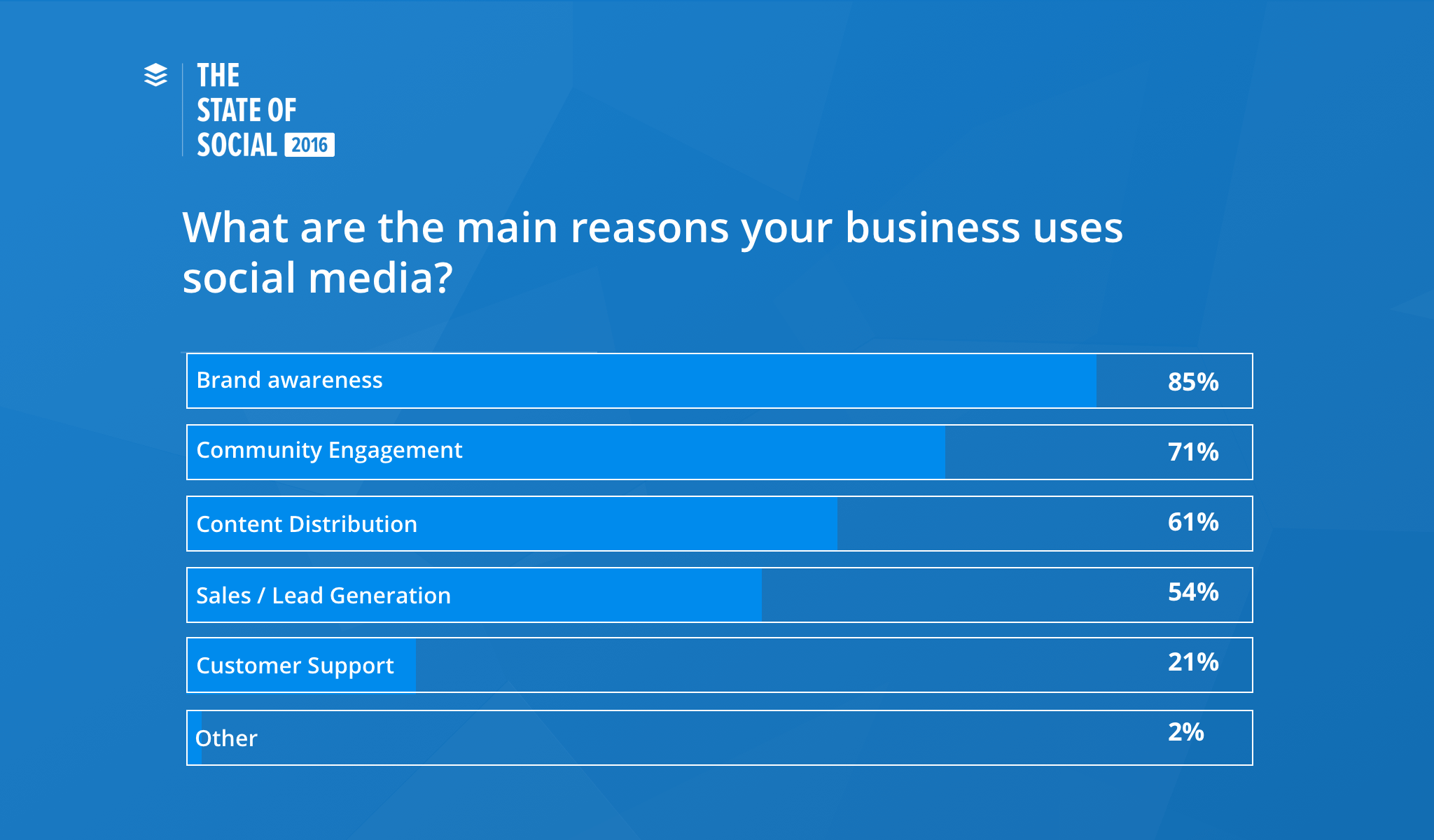
Based on your current behavior, if researchers were to ask your coworkers what they thought your values, vision, mission, and purpose were, what do you think they would say in response?
In other words, how do you think other people think and talk about you when you are not there?
How do the people who work with you and deal with you from day to day assess the quality of your character and the values you live by?
These are some of the most important questions you can ever ask. And the answers should not be left to chance.
SET GOALS FOR YOUR BUSINESS AND CAREER
Your goals are the measurable objectives you must attain to fulfill your mission and purpose and realize your vision. They are the targets you aim at.
- What are your goals for business, work and career?
- What role does Social Media Marketing play in attaining those goals?
BSQ
- Think Big – Define your ultimate goal
- Act Small – Identify the milestones that will help you achieve that goal
- Move Quick – Come up with a timeline for achieving each milestone
For example:
Let’s see how this might work with our Facebook goal-setting.
- Think Big – What would be a major accomplishment for us on Facebook?
- Act Small – Which steps would we need to take in order to achieve this goal?
- Move Quick – What time frame would work to achieve each of these steps?
Organizational psychologist David Van Rooy came up with a simple framework for goal-setting, which he touches on in his book Trajectory. The three-part framework aims to distill the existing research and best practices for goal-setting into a simple set of rules.
If you sift through all of the research, goal setting can be boiled down to three main tenets:
1. A goal is better than no goal
2. A specific goal is better than a broad goal
3. A hard and specific goal is better than an easy goal
Your goals must be clear, written, and specific. They must be believable and achievable. They must be accompanied by written plans and schedules for their accomplishment. You must work on them every day. Most businesses miss this step when it comes to Social Media Marketing and Strategies.
Each goal must include performance measures, or bench-marks. These numbers allow you to clearly determine whether you are moving closer to your goals or further away.
- How many new PAGE LIKES do we get weekly on FB?
- How many new followers do we get weekly on Twitter?
- What type of content are we producing each week that engages our audience?
- How often are we producing content to keep us from falling further behind our competition?
In every part of your life, you need these measures to evaluate how well you are doing. Your measures serve as scorecards to indicate success or failure in your activities. The choice of a specific standard of performance becomes a primary focal point for your career.
- One obvious measure, or focal point, is the amount you earn each year.
- Another is the rate of increase in your pay, year by year.
- A measure could be how often you have been promoted in the last two years.
- Another could be your percentile ranking in comparison with others in your field.
Many self-employed professionals use their hourly rate as the critical success factor by which they evaluate their performance and effectiveness. The amount they earn per hour, and how often they earn that amount, is a summary indicator of how well they are doing in many other parts of their careers.
What are your key standards of performance for your work?
How do you measure your success on a day-to-day, week-to-week, month-to-month basis?
When you set clear goals for yourself, you should write them down, make plans to achieve them, and work on them every day. Be sure that you have a clear measure of your progress that you can refer to regularly. This becomes your focal point. This is where you mark the “X” in your work life.
SOCIAL MEDIA GOALS
Social media isn’t only a marketing tool, it can affect almost every area of a business – for example, as we discovered in our State of Social 2016 report, social media is a key channel for brand awareness, engagement, lead generation, customer support and much more.

Image: Buffer
A key part of social media success is knowing which goals and targets to set for your team.
Without goals, it’s hard to know exactly how well your social media strategy is performing and where you need to iterate to continue moving forwards.
Today I’d love to share with you a few super-actionable social media goals you can use to help your team achieve great things. Effective social media goals and for each goal we also give some relevant metrics to track and share how to measure your results.
Let’s get started…
Social Media goals for your team (and how to track them)
So, in 2017, we know that social media can aid businesses in many ways, but how can we ensure we’re getting as much value as possible from the time and resources we put into social media?
One way is by setting goals. And a super-interesting piece of research shows, that goal setting can have a significant effect on an individual’s performance and happiness.
In 2010, a group of researchers in Canada studied the effect of goal-setting on the academic performance of 85 students. After four months, they found that the group that went through an intensive goal-setting program achieved significantly better results and than the control group.

If you want to stay motivated and achieve more results for your company through social media, science recommends setting goals. But which goals should you set?
Let’s take a look at a couple.
-
Increase brand awareness
According to our recent State of Social Media 2016 survey, brand awareness is the top reason marketers use social media. It’s easy to understand why: The average person spends nearly two hours on social media every day, and therefore social media is one of the best places to grab consumers’ attention.
Social media has also enabled marketers to have a more quantitative understanding of their brand’s presence and reach in the online world. And now most social media platforms provide data on the reach of your content, allowing you to report your online presence more accurately.
Potential metrics to measure brand awareness:
- Followers count – “How many people can you potentially reach?”
- Reach of your social media posts – “How many people have do reach each day / week / month?”
- Mentions, shares, and RTs – “How many people are talking about your brand or sharing your social media posts?”
2. Drive traffic to your website
One step further from having a brand presence on social media is driving visitors to your website or blog, who might turn into your customers.
Three in five marketers use social media to distribute their content and drive traffic to their sites. A team at HubSpot, for instance, grew their monthly blog traffic by 241% over eight months through social media experiments.
Potential metrics to measure traffic:
- Traffic from social media – “How many visitors are coming from your social media channels?”
- Share of overall traffic – “How much of your overall traffic does social media account for?”
- Bounce rate of social media traffic – “What is the quality of the traffic from social media?”
- Clicks on your social media posts – “How well is the messaging of your social media posts?”
How to measure traffic to your website:
Google Analytics is probably one of the easiest tools for tracking web traffic. It provides you with information about your website or blog traffic from various traffic sources, including social media.
UPGRADE YOUR BUSINESS & CAREER
KNOWLEDGE & SKILLS

What additional knowledge or skill will you need to achieve your goals and fulfill your vision?
Remember that if you’re not getting better, you’re getting worse.
What are the core competencies that you will have to develop if you want to lead your field in the years ahead?
What are the core competencies that you will have to develop and keep sharp if you want to master Social Media Marketing and beat out your competitors?
How do you plan to acquire these core competencies?
Four Keys to Career Success

1. Specialization is your ability to channel your talents and abilities into a vital area that is of measurable value to you, your company or your customers. Your selection of an area of specialization is a critical determinant of your long-term success. What is yours?
2. Differentiation is how you set yourself apart from others on the basis of your superior performance in one or more areas. What sets you apart from your competitors utilizing Social Media Marketing?
- Your ability to differentiate yourself on the basis of high-quality work probably is the most important single focal point of your career. Just as a company must have an area of excellence or competitive advantage to survive and thrive, you must have at least one as well. What is it?
- If your customers and coworkers were asked, “What is his or her area of excellence?” what would they say about you?
- In what part of your work are you outstanding?
- What do you do better than anyone else?
- Where do you perform at a high level of effectiveness?
If you do not yet have an area of excellence, you must begin immediately to develop one. Consider both your abilities and your company’s or your customers’ needs. What should it be? What could it be?
What is your plan to become outstanding at what you do?
And how will you measure your level of excellence in a particular area of knowledge or skill? This measure becomes your standard of performance, your focal point. This is where you mark the “X” in your career. This is where you focus your attention.
Becoming excellent in a critical skill area can do more to advance you in your career than perhaps any other decision you make or action you take.
3. Segmentation is the ability to determine the people and organizations in your work life that can most benefit the fastest from your performance in a particular area. In segmentation, you define your most important customer clearly and then resolve to satisfy that particular customer better than anyone else.
Often, you can change the entire direction of your business or your career by changing the definition of the customer you are going to focus on in the future.
4. Concentration is your ability to focus single-mindedly on serving your specific market segment with products and services that are excellent for that individual or organization.
These four strategies—specialization, differentiation, segmentation, and concentration—are the essential focal points for achieving extraordinary results in your company and in your career.
Ask yourself, “What one skill, if you developed it and did it in an excellent fashion, would have the greatest positive impact on your business & career?”
Whatever your answer to that question, write it down as a goal, set a deadline, make a plan, and begin working on developing yourself in that area until you master it. This is the real key to career success.
Summary – Applying goal-setting to social media
One of the unique elements of social media marketing is that the goals and objectives can come in so many different shapes and forms, depending on your brand’s mission. The goals often change, too, as you grow your influence online.
Carter Hostelley, writing for CMS Wire, has a great way of breaking down social media goals into the following four categories:
- Activity-based goals
- Audience-building goals
- Engagement goals
- ROI goals
What might these look like on the different social networks? At Unbounce, Danielle Prager listed a number of measurable social media goals that you might consider setting for various channels. Here are her ideas for Twitter and Facebook.
About Blair

Blair Evan Ball is a Social Media Coach and founder of Prepare1, a company that works with businesses, individuals and non-profits. He is a former executive with a Fortune 50 company, and his national division did $1Billion+ in sales annually.
Blair has written three e-books: Facebook for Business Made Easy, Facebook Pages for Business Made Easy, and WordPress Blog Setup Made Easy.
Blair also educates, trains entrepreneurs and business professionals how to amplify their brand, increase revenues, and raise more funds.
![[Study] How Will Businesses Change Their Social Media Activities 5 Golden Rules for Sharing on Social Media](https://www.prepare1.com/wp-content/uploads/2014/03/COACH-logohat-162x300.jpg) The Race is ON! | PREPARE | Get into the Game and WIN!
The Race is ON! | PREPARE | Get into the Game and WIN!










Comments on this entry are closed.